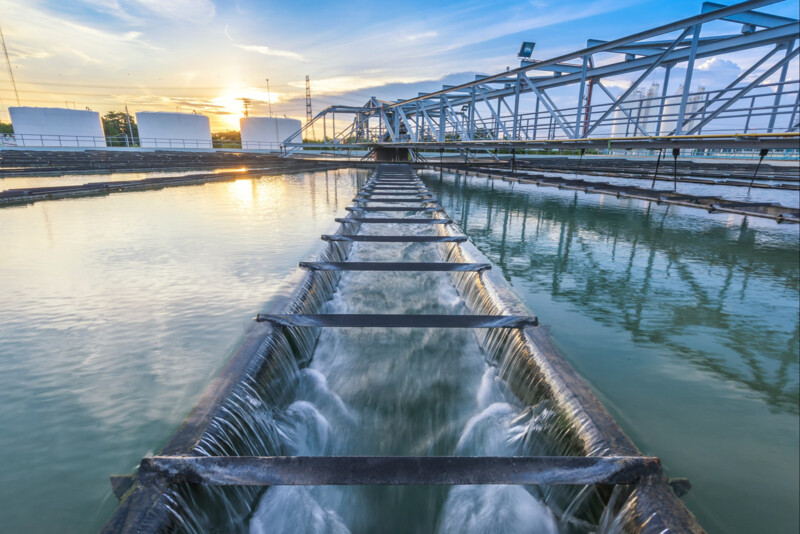D’après un rapport publié par l’ONG CDP et le groupe de réflexion Planet Tracker, la crise de l’eau expose les institutions financières à des risques importants. Ces risques restent insuffisamment pris en compte, alors que les entreprises mondiales de certains secteurs perdent déjà des milliards de dollars à cause des problèmes liés à l’eau.
Une sous-estimation des risques liés à l’eau
Selon le portail de statistiques Statista, le marché mondial de l’eau devrait valoir 500 milliards de dollars à l’horizon 2028, contre 283 milliards de dollars en 2021. L’ONU estime de son côté que si rien n’est fait, une pénurie de 40 % de l’approvisionnement mondial en eau pourrait frapper la planète d’ici à 2030.
Or, comme le révèle un récent rapport de l’ONG CDP et du groupe de réflexion Planet Tracker, un tiers des institutions financières cotées en Bourse n’avaient, l’année passée, pas évalué leur exposition aux risques liés à l’eau. Ces risques sont nombreux, englobant les sécheresses, la pollution, mais aussi les perturbations d’ordre réglementaire, technologique ou réputationnel.
Sous-estimant ces risques, 33 % des institutions financières ne les prennent tout simplement pas en compte lorsqu’il est question d’octroyer des prêts ou de procéder à des investissements.
Le CDP et Planet Tracker ont interrogé 1 112 entreprises cotées en Bourse. Pour 69 % d’entre elles, les risques liés à l’eau sont susceptibles d’avoir « un impact substantiel sur leurs activités ». Les pertes pourraient atteindre 225 milliards de dollars.
13,5 milliards de dollars d’actifs bloqués
Selon la directrice mondiale du CDP pour la sécurité de l’eau, Cate Lamb, les entreprises perdent déjà des milliards de dollars à cause de l’absence de prise en compte des risques liés à l’eau. Pour les institutions financières qui financent ces entreprises, il est donc urgent de prendre la mesure de leur exposition et d’agir en conséquence.
D’après le CDP et Planet Tracker, des actifs d'une valeur de 13,5 milliards de dollars sont actuellement bloqués dans divers secteurs à cause des problèmes liés à l’eau, que ce soit dans les secteurs du pétrole et du gaz, des mines et métaux, du charbon ou des services publics d’électricité.
Plusieurs projets industriels d’envergure ont été bloqués ces dernières années en raison de problèmes liés à l’eau. Au Canada, le projet de l’oléoduc Keystone XL a ainsi été bloqué suite à de nombreuses controverses, les défenseurs de l’environnement s’y étant opposés à cause des risques de pollution.
Les travaux de la mine d’or à ciel ouvert Pascua Lama, à la frontière entre le Chili et l’Argentine, ont été interrompus en 2018, générant 7,5 milliards de dollars de pertes. Le groupe canadien a dû reculer face aux associations de défense de l’environnement et à l’opposition des communautés indigènes diaguitas.
Le rapport du CDP et de Planet Tracker « High and dry : how water issues are stranding assets » a recensé les institutions financières publiques et privées les plus liées à 42 des entreprises cotées les plus polluantes ou à risque. Les principaux actionnaires des secteurs du charbon, du pétrole et du gaz, de l’électricité et des mines et métaux sont les gestionnaires d’actifs américains BlackRock et Vanguard, devant l’État français (Engie et EDF), et derrière la Chine (PetroChina) et l’Arabie saoudite (Aramco).
